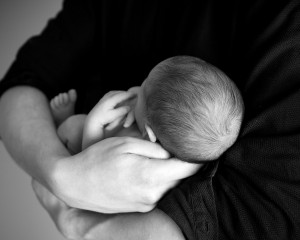Although it is widely believed that infants’ airways are sterile before birth, University of Alabama at Birmingham researchers have discovered microbes (or bacterial DNA) have already colonized when a baby is born, even as early as 24 weeks gestation.
Researchers have not yet identified how the bacteria come into the airway or what benefits are derived from the pre-birth colonization. It is suspected that the transmission of bacteria or bacterial DNA to the in-utero infant could be via blood or amniotic fluid, as the placenta has already been proved to host a microbiome. The researchers’ primary breakthrough however, lies in their discovery of the correlation between colonization in specific patterns and the development of severe neonatal lung disease.
Infants who are born extremely early could develop life-threatening bronchopulmonary dysplasia or BPD. This is the most frequently seen lung pathology in this patient population and can lead to morbidity, mortality, health care expenditures, and long-term problems with lung function as adults.
Looking into this subject further, UAB researchers collected early saline aspirates from tracheas of newborns at birth or within six hours of delivery. They found that an early microbial imbalance, otherwise known as dysbiosis, can predict whether or not a given child has BPD. Extremely low birth weight or ELBW infants who developed BPD had previously displayed abnormal microbial colonization patterns at birth.
Additionally, the researchers also exxamined airway microbiomes of 18 ELBW infants with established BPD and discovered decreased diversity in the types of microbes present along with differing microbial patterns from those of full-term infants at birth or of ELBW infants right after birth.
Researchers also saw that the phylum Proteobacteria seems to be involved in BPD pathology, and the genus Lactobaccillus, in disease protection. The microbiome, researchers suspect, could prime the pulmonary immune system, and interference with bacterial colonization patterns may lead to subsequent lung disease.
The study results were also validated in Philadelphia in collaboration with Vineet Bhandari at Drexel University College of Medicine. This research sets the stage for further exploration into the use of respiratory probiotics in the future.
For more information, visit: www.uab.edu

